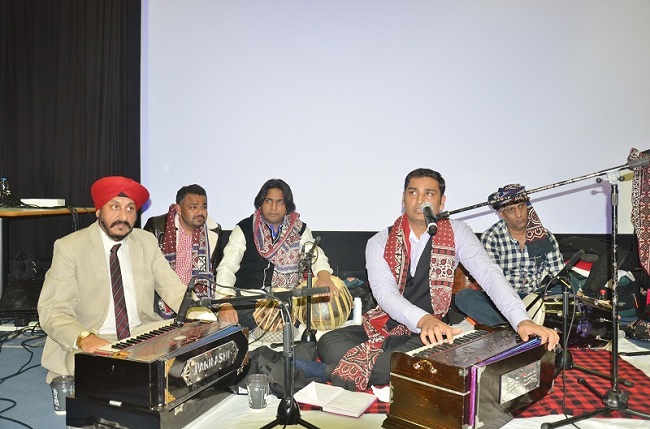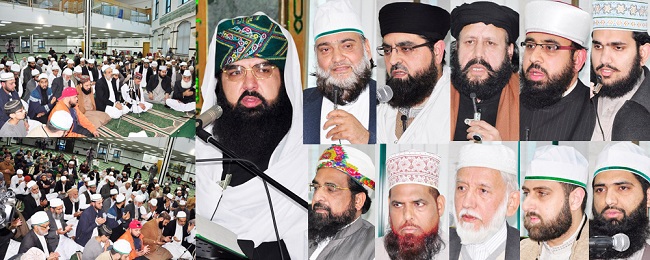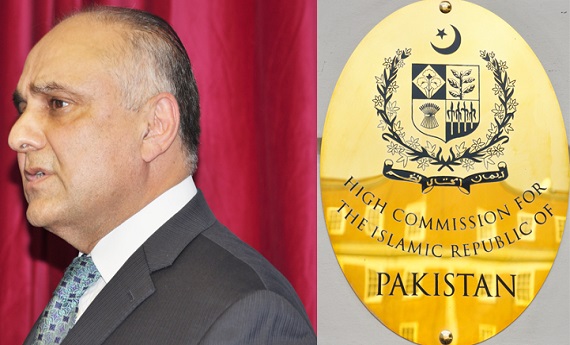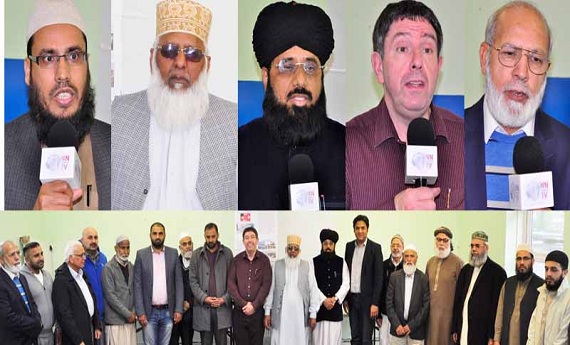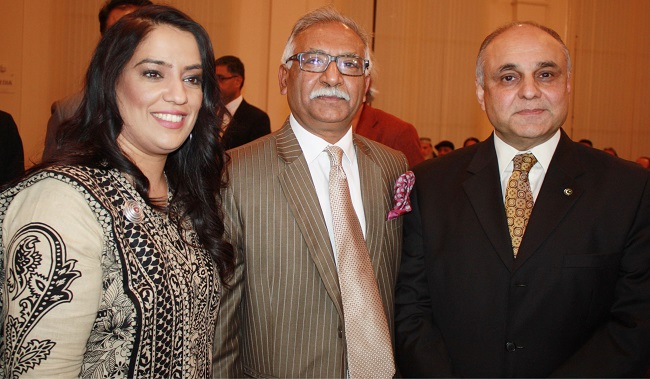Sindhi national self-determination struggle will lead towards peaceful and secure South Asia
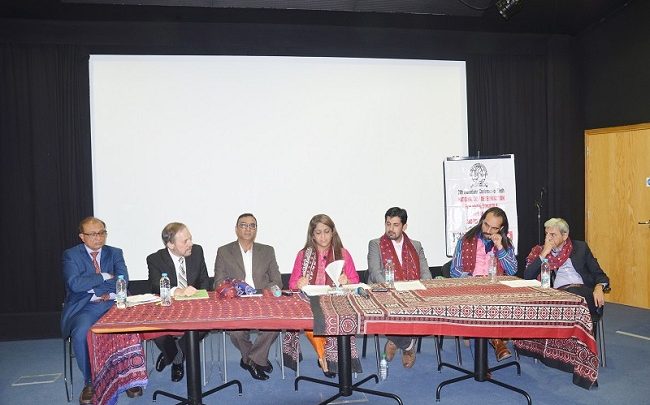
LONDON, UK, Rise of radical religious ideologies, the exploiting economic intrusion of China in Pakistani regions, the hegemony of Punjab over Sindh and Balochistan, and military authoritarianism in Pakistan have created instability
and volatility in South Asia. Sindhi peoples have historically been on the forefront of secular and democracy movements, and their national self-determination would serve an antidote to the religious radicalization and can pave a way to secure and peaceful South Asia.
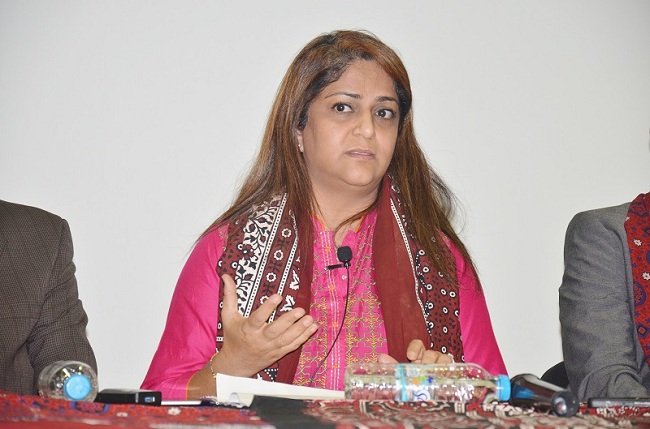
These issues were the focus of the 29th International Conference on Sindh held at the University of Westminster, Harrow Campus, London, the UK on October 28th, 2017. This conference is organized annually by the World Sindhi Congress (WSC), a human rights advocacy group, based in the UK, USA, and Canada. More than 200 delegates attended the conference and traveled from different parts of UK, EU, USA, Canada, India,
Afghanistan, Sindh and Balochistan.“Pakistan has proved to be the nemesis of peace and security inside and outside its borders. The International community has long been held hostage to it dissimulation.” Said, Dr. Rubina Shaikh, the Chairperson of the
World Sindhi Congress. She called upon the International Community to support the Sindhi national struggle.Dr. Shaikh lamented the over the concentrated efforts of Pakistani governments’ network of spies and agents for harming the national struggles of oppressed nations of Pakistan — dividing Baloch and Sindhi on petty issues of geography and attacks on a minuscule number of Sindhi labors in Balochistan and of provoking Urdu speaking Sindhis to demand the division of Sindh.“All these designs have to be thwarted with positive, civil, logical and thoughtful manner,” proclaimed Dr.Shaikh.She pleaded all the Sindhi organizations and parties in Sindh to make their fundamental objective to defend the rise of Islamic radicalism in Sindh. She called for the immediate release of Sindhi activists who have been abducted by security agencies.
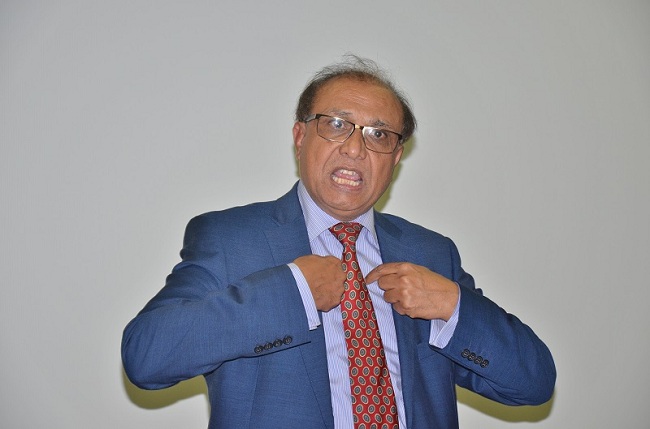
Dr. Lakhu Luhana, Secretary General of WSC, said,” Sindh is both the most resourceful province of Pakistan,rich with oil, gas, coal reservoirs, and the largest tax contributor in Pakistan, yet Sindhis remain among the poorest and most disfranchised nation in Pakistan. The Pakistani establishment has devised policies which have appropriated Sindh’s land, stolen its natural resources, diverted its share of water from the River Indus through damming and illegal canals, all to benefit its largest province of Punjab.”
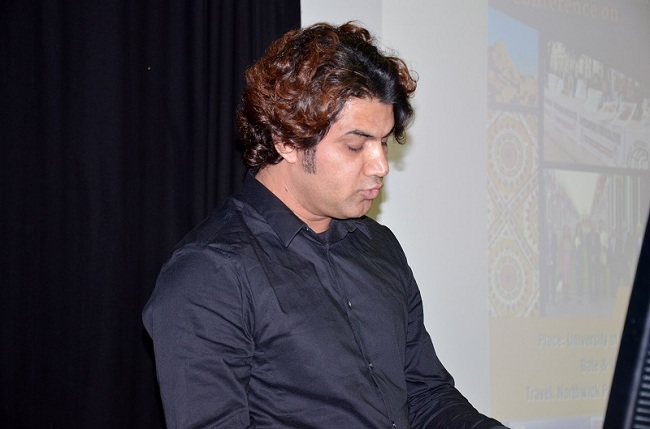
Mr.. Aslam Shah, who is a researcher at the Sheffield University, UK, read a paper on the Pakistani establishment’s evident role in sponsoring and promoting extremists religious ideologies and groups.Dr. Zakar Sadat of Unity Afghanistan Movement, UK categorically rejected the so-called Durand line. He said
that the CPEC project is detrimental to all the peoples of Pakistan especially to the Sindhi, Baloch and Paktoon
nations.
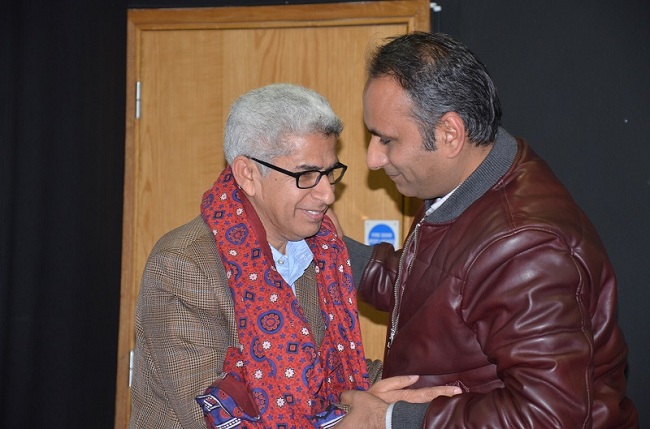
Mr. Munwar Laghari of Sindhi Foundation, USA highlighted the cases of enforced disappearances in Sindh and called for a united and concentrated campaign for their release. He urged that Saif Jatoi, Inam Abbasi, Abdullah Arijo and Hidayat Lohar and many others are immediately released, and their whereabouts made known.
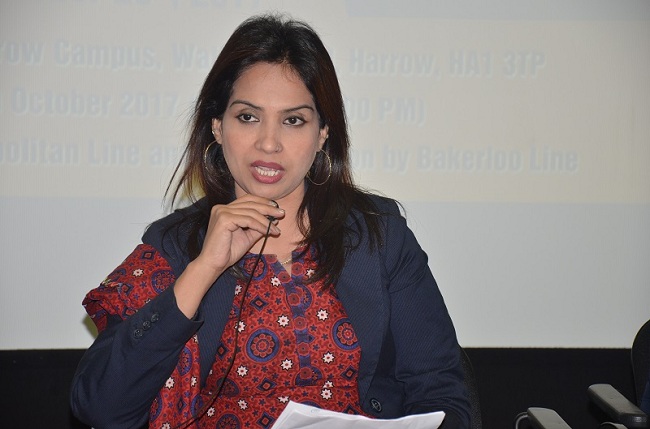
Ms. Shireen Aijaz of Human Rights Commission Sindh spoke about the recent 2017 Census in Sindh and Pakistan. She said that Pakistani establishment manipulated the census data and deliberately undeclared the Sindh’s Population.
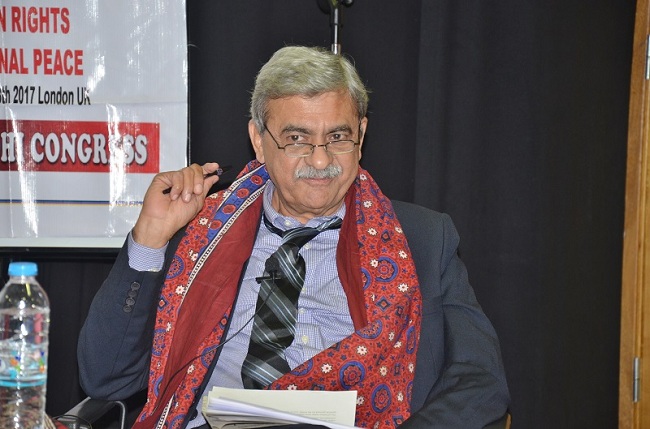
Baseer Naveed, Asian Human Rights Commission, Hong Kong called upon the unity of Urdu and Sindhi speaking Sindhis as their economic and political interests are the same. He showed a grave concern over the systematic violence against Sindhi political workers.
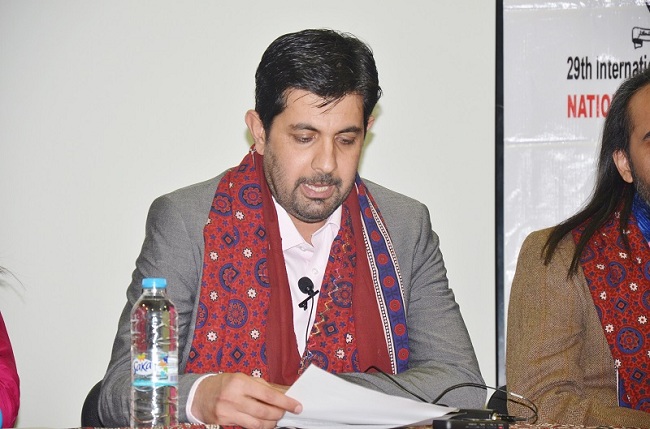
Hamal Hayder, Baloch National Movement (International) said that the destinies of Sindhi and Baloch nations
are tied together and called for the freedom of Balochistan.
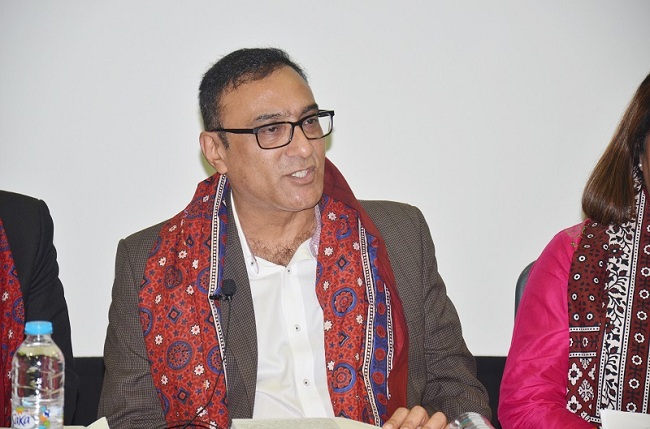
Dr. Safdar Sarki, Jeay Sindh Thareek Sindh said, “The recent plans to build the China-Pakistan Economic Corridor (CPEC) Sindh and Balochistan, will severely marginalize people of Sindh and Balochistan politically,demographically and economically with a genuine threat to convert them into a minority in their homelands.”
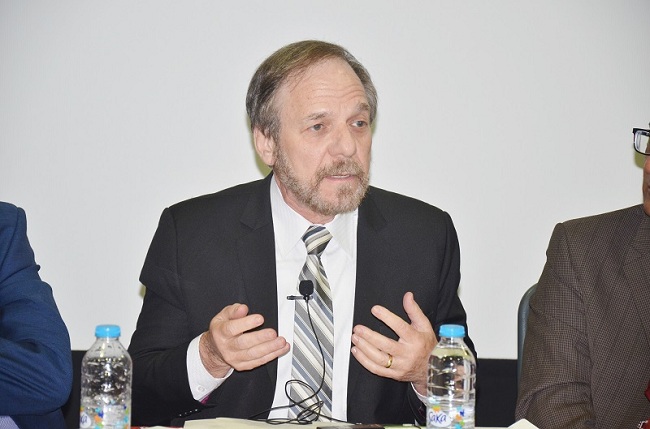
Dr. Richard Benkin, a prominent Human Rights Activist and Writer from the USA, said Sindh and Balochistan struggle is getting attention with US administration. He urged the US Government to support the national self-determination struggles of Sindhis.
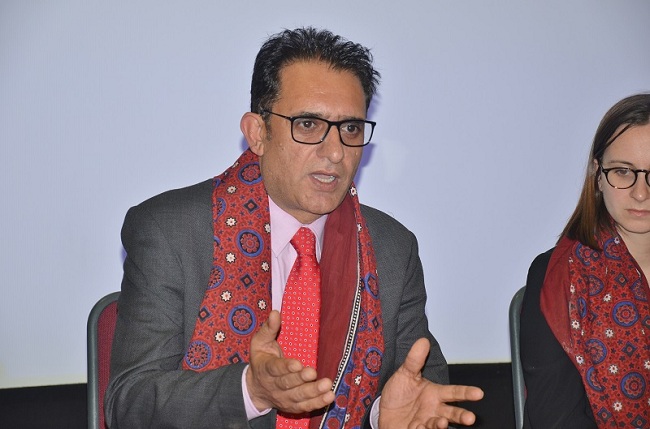
Other prominent speakers who spoke at the conference included Miss. Nicolleta Enria of the Unrepresented Nations and Peoples’ Organization (UNPO) of Brussels, Raja Sajjad of J & K Awami Workers Party, Mr. Amjad Yousif of UK PNP, Prof Dibyesh Anand of University of Westminster.
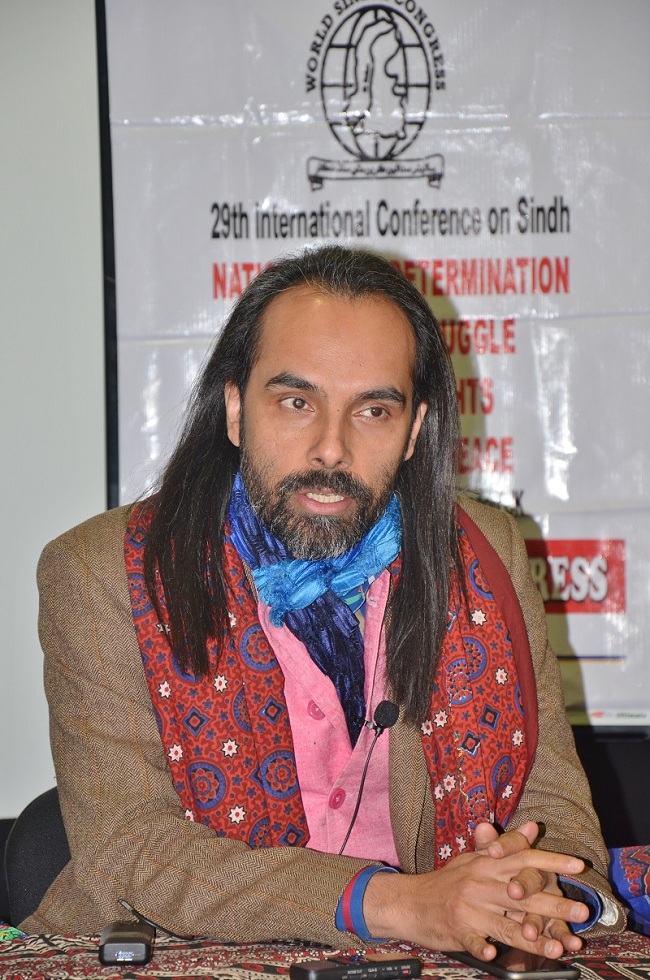
Representatives of Sindhi Diaspora organizations also participated in the event. Among those who spoke at the
conference included Dr. Rukhsana Abro of the International Sindhi Women’s Organization (ISWO), Mr. Sttar Soomro of the Sindhi Sangat, UK (SSUK), and Dr. Afsana Bhurgri of Sindhi Doctors Association, UK.
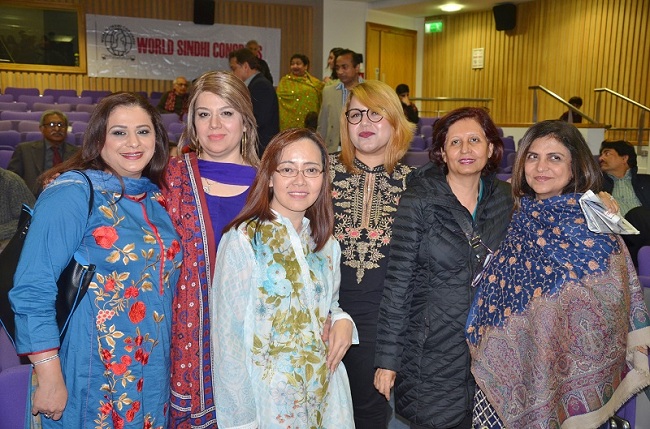
WSC delegates who spoke and moderated various panels included: Mr. Yaswant Mehraj and Mr. Umed Laghari of WSC, USA, Mr. Asif Panwhar of WSC, Canada, Mr. Tulsi Dhanjani of WSC, Europe, Mr. Gul Sani and Dr.Hidayat Bhutto of WSC, UK.
A Sindhi music performance featured great Sindhi soul and contemporary artist Jatin Udasi, who traveled from India. A local Sindhi artist Mr. Kamran Lashari also performed several songs. The two-hour music session turned out to be exceptionally gripping due to Mr. Udasi’s captivating performance. Close to 250 listeners danced non-stop for the entire length of the concert.
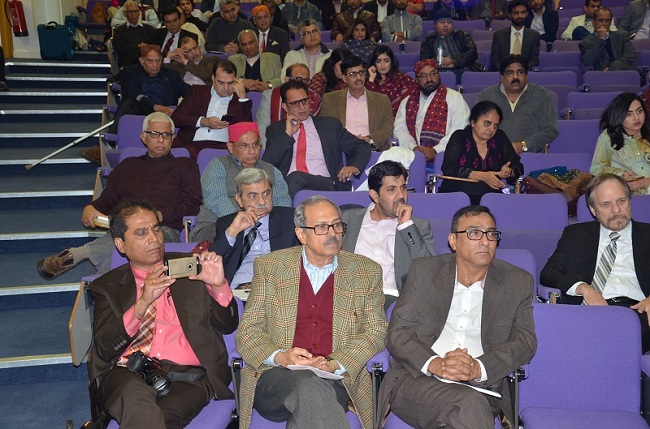
At the conclusion of the Conference, the delegates passed with consensus, several resolutions about the human rights situations in Sindh and Pakistan. Conference delegates asked the International community to recognize Sindh’s right to Self-Determination and to influence Pakistan to stop extra-judicial killings and enforced disappearances of human rights defenders. The conference also demanded from Pakistan to curb the
persecution of Sindhi Hindus and forced conversions of Sindhi Hindus to Islam and to ban Saudi-sponsored religious madrasahs. Conference delegates condemned the ongoing unfair policies to unlawfully take Sindh’s natural resources, land, and water, as well as to regulate the internal migration within Pakistan which is resulting in Sindhis becoming a minority in their homeland. Also, conference delegates univocally questioned
the legitimacy of the CPEC projects because it is imposed upon people without their consent or consultation.
